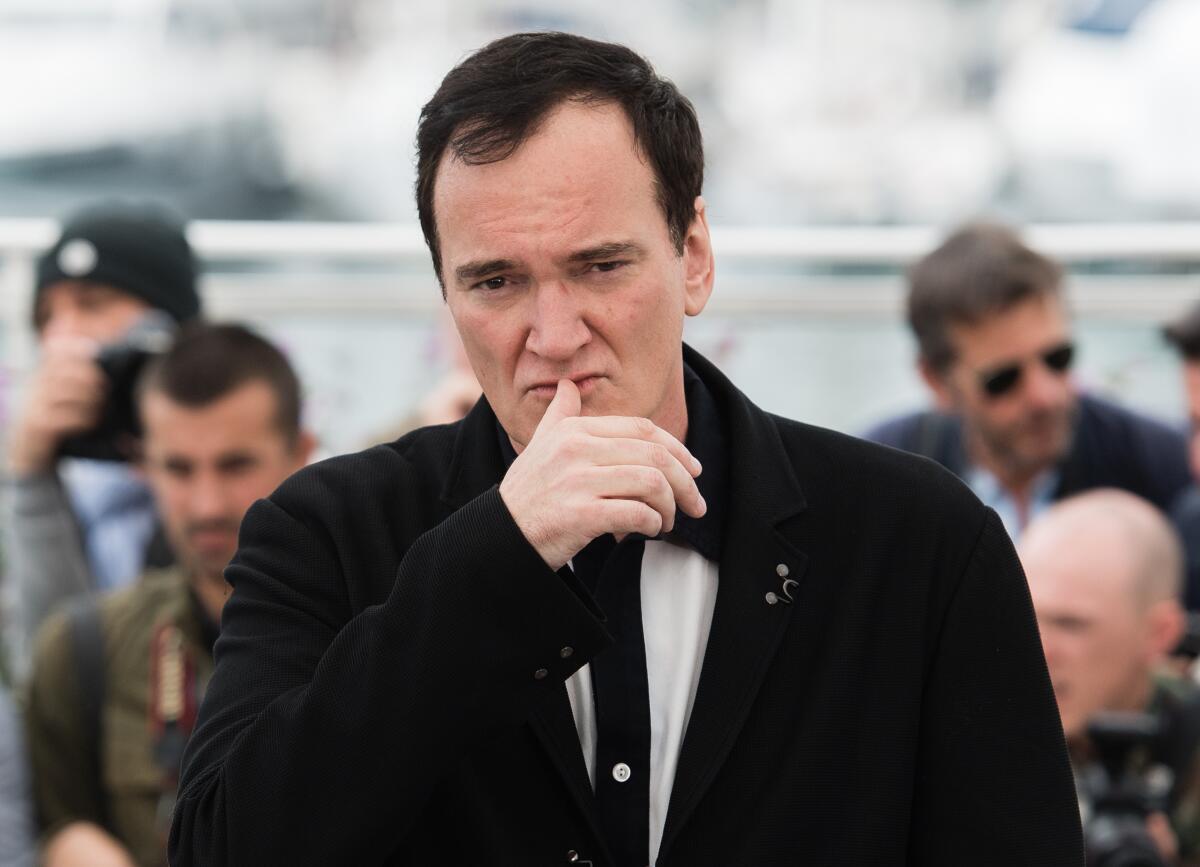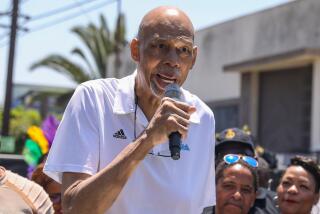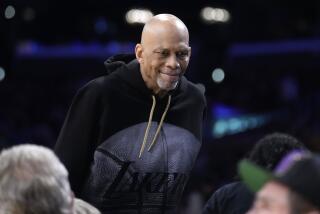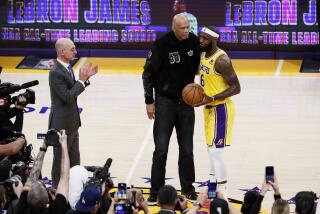Tarantino failed as an artist with Bruce Lee portrayal, Kareem Abdul-Jabbar says

- Share via
Kareem Abdul-Jabbar has weighed in on the discussion about Quentin Tarantino’s portrayal of Bruce Lee in “Once Upon a Time ... in Hollywood,” charging that the director had an obligation to present the martial artist in a more factual manner and accusing him of failing as an artist and a person.
“[F]ilmmakers have a responsibility when playing with people’s perceptions of admired historic people to maintain a basic truth about the content of their character,” the former Los Angeles Lakers star wrote in a column for the Hollywood Reporter.
“Quentin Tarantino’s portrayal of Bruce Lee in ‘Once Upon a Time ... in Hollywood’ does not live up to this standard. Of course, Tarantino has the artistic right to portray Bruce any way he wants,” he wrote. “But to do so in such a sloppy and somewhat racist way is a failure both as an artist and as a human being.”
Abdul-Jabbar’s criticism comes after Lee’s daughter, Shannon Lee, said earlier this week that Tarantino had options other than his response in Moscow last week to criticism of the movie’s Bruce Lee portrayal, where the director called the real Lee “kind of an arrogant guy.”
Is Bruce Lee’s portrayal in Quentin Tarantino’s ‘Once Upon a Time ... in Hollywood’ homage or exploitation?
Tarantino could have “shut up about it,” Shannon Lee told Variety, or “he could apologize or he could say, ‘I don’t really know what Bruce Lee was like. I just wrote it for my movie,’” she said. “‘But that shouldn’t be taken as how he really was.’”
Other historic figures portrayed in the film include actress Sharon Tate, actor Steve McQueen, Charles Manson and members of the Manson “family,” but none have sparked the controversy that has surrounded the Bruce Lee characterization.
Abdul-Jabbar wrote that Lee was a friend and teacher to him and credited “the discipline and spirituality of martial arts” that he learned from Lee for allowing him to play basketball for 20 years with relatively few injuries. He also admitted he is a huge Tarantino fan and thus torn about his feelings.
“That’s what makes the Bruce Lee scenes so disappointing, not so much on a factual basis, but as a lapse of cultural awareness,” Abdul-Jabbar wrote, citing Tarantino’s skill in distilling action movies from the 1960s and ’70s.
“First rule of Bruce’s fight club was don’t fight — unless there is no other option,” he wrote. “He felt no need to prove himself. He knew who he was and that the real fight wasn’t on the mat, it was on the screen in creating opportunities for Asians to be seen as more than grinning stereotypes.”
More to Read
The biggest entertainment stories
Get our big stories about Hollywood, film, television, music, arts, culture and more right in your inbox as soon as they publish.
You may occasionally receive promotional content from the Los Angeles Times.











